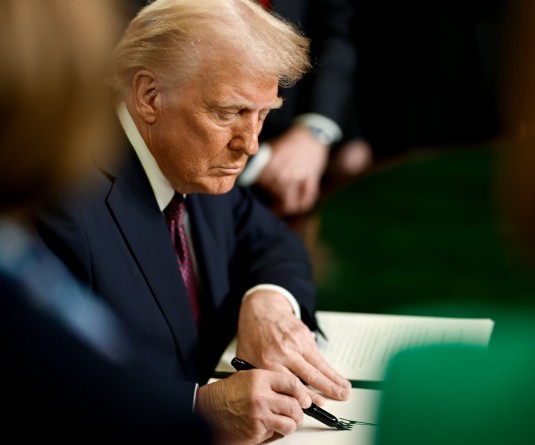
BERLIN, March 28 (Reuters): German Chancellor Angela Merkel's conservative party said on Monday it stood united behind its leader after some members blamed her for a humiliating loss in a state vote in Baden-Wuerttemberg. A coalition of the Greens and Social Democrats is expected to take power in the prosperous southwestern region after an election on Sunday pushed out Merkel's conservatives from a stronghold they had ruled for six decades.
The loss came after Merkel surprised many of her conservative allies by reversing policy on nuclear power following the earthquake, tsunami and nuclear disaster in Japan. "The conservatives stand united behind Angela Merkel," Hermann Groehe, the general secretary of Merkel's Christian Democrats (CDU), told ARD public television on Monday. "We need to take on the looming challenges together."
Shares in German utilities fell and renewables stocks rose on the expectation the vote could accelerate a shift away from nuclear power.
Deutsche Bank said in a note the election would lead to a "radical re-ordering of Germany's nuclear energy policy, and an accelerated schedule for the permanent shutdown of some or all of Germany's 17 nuclear reactors." The euro fell on Monday as investors bet Merkel would have less leeway to shore up financially stricken members of the single currency bloc.
Signs of dissent within Merkel's conservative coalition were evident hours after the election results emerged, with one prominent CDU member criticizing her for the nuclear about-face. "This has broken the spine of the CDU," Friedrich Merz, a former leader of the CDU in parliament who was sidelined by Merkel before she became chancellor, told Handelsblatt daily. "Anyone who rides a wave of panic shouldn't be surprised to be smothered by it."
Members of Merkel's Bavarian sister party, the CSU, also blamed her for the setback, criticizing her government's policies on Europe, taxes and energy. Merkel, who will not face another federal election until 2013, is expected to weather the defeat, in part because she has no major rivals left within her party.
But major changes could be looming for her coalition allies, the Free Democrats (FDP), who barely scraped into the assembly in Baden-Wuerttemberg and have seen their support drop since a strong performance in the 2009 federal vote. A weak FDP is bad for Merkel as her party relies heavily on its smaller partner to form governments at both the federal and state level.
"She has to look for new ways to win elections without the FDP, and she must find them soon, before the next federal election," the Financial Times Deutschland said in an editorial on Monday.
The loss came after Merkel surprised many of her conservative allies by reversing policy on nuclear power following the earthquake, tsunami and nuclear disaster in Japan. "The conservatives stand united behind Angela Merkel," Hermann Groehe, the general secretary of Merkel's Christian Democrats (CDU), told ARD public television on Monday. "We need to take on the looming challenges together."
Shares in German utilities fell and renewables stocks rose on the expectation the vote could accelerate a shift away from nuclear power.
Deutsche Bank said in a note the election would lead to a "radical re-ordering of Germany's nuclear energy policy, and an accelerated schedule for the permanent shutdown of some or all of Germany's 17 nuclear reactors." The euro fell on Monday as investors bet Merkel would have less leeway to shore up financially stricken members of the single currency bloc.
Signs of dissent within Merkel's conservative coalition were evident hours after the election results emerged, with one prominent CDU member criticizing her for the nuclear about-face. "This has broken the spine of the CDU," Friedrich Merz, a former leader of the CDU in parliament who was sidelined by Merkel before she became chancellor, told Handelsblatt daily. "Anyone who rides a wave of panic shouldn't be surprised to be smothered by it."
Members of Merkel's Bavarian sister party, the CSU, also blamed her for the setback, criticizing her government's policies on Europe, taxes and energy. Merkel, who will not face another federal election until 2013, is expected to weather the defeat, in part because she has no major rivals left within her party.
But major changes could be looming for her coalition allies, the Free Democrats (FDP), who barely scraped into the assembly in Baden-Wuerttemberg and have seen their support drop since a strong performance in the 2009 federal vote. A weak FDP is bad for Merkel as her party relies heavily on its smaller partner to form governments at both the federal and state level.
"She has to look for new ways to win elections without the FDP, and she must find them soon, before the next federal election," the Financial Times Deutschland said in an editorial on Monday.






